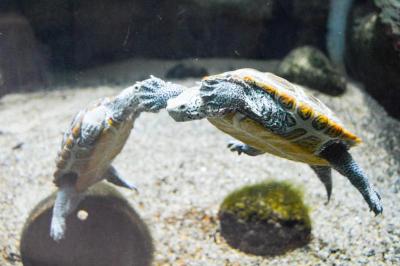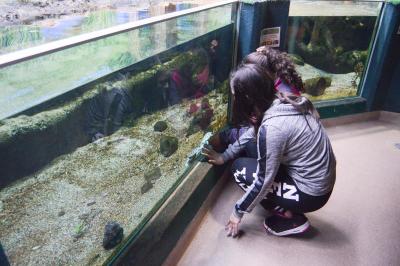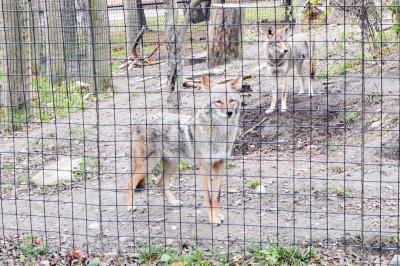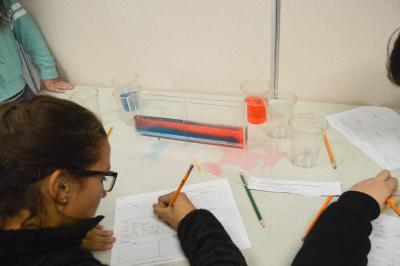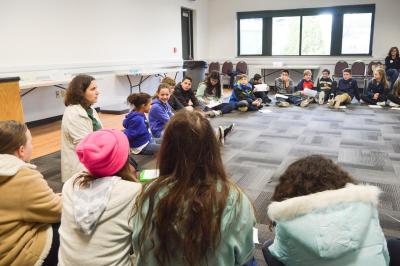Dartmouth Middle School takes steps to a smaller carbon footprint
Using experiments and M&Ms – and with a little help from a lynx – Buttonwood Park Zoo staffers educated Dartmouth Middle School students about the dangers of climate change.
Over two days, 335 seventh grade students from Dartmouth Middle were invited to learn how they can reduce their carbon footprint. The event coincided with another climate event in Dartmouth.
“The adults are all over there [UMass Climate Summit], talking about climate resiliency and what can be done with the South Coast region around climate change, sea level rise, storms,” said Curator of Education Carrie Hawthorne.
Students were rotated between four different activities including classroom lessons and more hands-on activities within different exhibits.
The classroom portion kicked off with science activities to better envision how climate change works. Sarah Bean assigned students to three different experiments where they created a hypothesis, performed the experiment and collected evidence that proved or disproved their hypothesis.
Hawthorne concluded the classroom portion with an experiment to show the difference between climate and weather. Kids were given packs of M&Ms as an incentive to wrap up their educational trip.
Conservation education specialist Hannah Hamilton took kids through the aquatic center where they learned about CO2 emissions and how those emissions contribute to ocean acidification. These emissions are largely absorbed by the oceans, which not only changes their chemistry but causes them to warm significantly, said Hamilton.
They then continued to the lynx exhibit with Jen Colier where students learned about how changes in climate impact species in the wild by altering their habitats.
The lynx is a wildcat typically found in areas with “deep snowpack,” Colier said. Due to the warming climate, the lynx is being outcompeted by other predators like wolves and coyotes who now encroach on their habitats due to the decrease in snow.
Colier led the students in a brainstorming session to come up with simple ways to help reduce their own carbon footprints, including unplugging appliances, shutting off lights when not in use and carpooling to help reduce harmful emissions.
“If everyone up and down the road is doing it, it helps so much more,” said English teacher and chaperone Mark Russel.
Dartmouth isn’t the only place buzzing about climate change. The United Nations Conference on Climate Change in Paris is happening concurrently. Leaders from 150 nations are all striving to limit rising temperatures to no more than 2 degrees Celsius above pre-industrial temperatures.
“Internationally, people are talking about it,” Hawthorne said.




